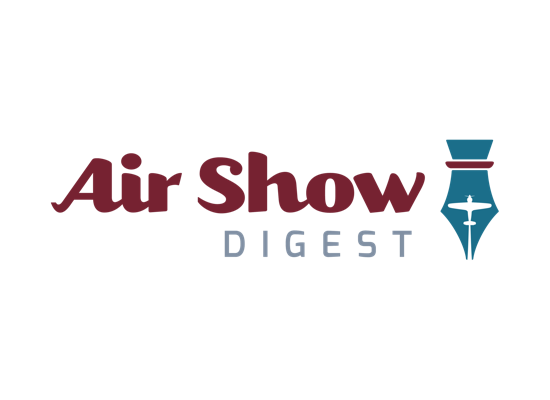Imagine if the spectators at your show were not able to buy a bottle of water, hot dog, T-shirt or toy airplane. Consider the financial impact to your show if the fees paid to you by vendors were suddenly eliminated as a source of air show revenue. At the very least, you’d be looking at an unhappy crowd and significantly reduced income. For some, the show would have to be cancelled. Not to mention the almost-impossible-to-imagine visual image of an air show without food, toy, or souvenir vendors.
Though their services and fees are critical to many shows, air show concessionaires may well be the least appreciated members of our air show family. They offer an important — in some cases, essential — source of pre-show funding. They make spectator creature comforts available and affordable. Both as a group and individually, they offer invaluable insight and broad experience on some of the air show community’s most difficult challenges. Every weekend, they travel hundreds of miles and risk thousands of dollars to provide services to the spectators who attend your show. Yet, despite their hard work and deep commitment to the business of air shows, they’re often treated as an otherwise unremarkable source of additional revenue…an air show afterthought.
Worse, they’re in no position to complain. To be branded as a malcontent or whiner within the close-knit air show community is tantamount to professional suicide. But, if we are, in fact, an air show family, then all members should be able to expect to be treated respectfully and professionally.
There are, of course, bad vendors…concessionaires who don’t do as they are asked or attempt to cheat a show or are simply difficult to work with. But, as always, the 80 percent who do their jobs well resent it when they’re painted with the same brush that should be reserved for the 20 percent who don’t.
In the interests of air show family harmony, here are a few tips for improving vendor relations.
1. Play it straight. Honesty is still the best policy…whether you’re talking with a souvenir vendor, an air show performer or a spectator.
2. Put it all down in black and white. What the vendor can sell and what the vendor can’t sell. When to arrive and when to depart. Is there security or 24-hour access? Are pets allowed on the ramp? Booth location, hours of operation, projected attendance, number and type of other vendors. Put it all down. And then deliver on those written promises. And expect nothing less from the vendors you invite to your show. There’s much less room for misunderstanding and hard feelings when expectations and requirements are in writing.
3. Vendors deserve your respect. In private and in public. Before, during and after the show. Whether you’re working to sell them ramp space five months before show date when money is tight and every additional vendor means important additional start-up funding or working through a problem with them on the day before the show opens. Remember that the concessionaires who participate in your show are among your most lucrative customers your show has, members of the air show family who are paying significant sums of money to be on your ramp during your show.
4. Location, location, location. The placement of a vendor booth is often the difference between a money-making and a money-losing weekend. Of course, not everybody can get the one best location on your ramp. But where you place a vendor can often have a big impact on whether that company decides to participate in your show. Bait and switch games designed to lure a vendor to your show will always backfire and are in direct conflict with Tip #1.
5. No disappearing contact points. If a particular person in your organization was responsible for talking to and negotiating with vendors, that person should be available if and when problems come up during set-up. Of course, it’s always best to put everything in writing to avoid subsequent confusion or disagreements. But things don’t always work out that way. If there’s a person in your organization that made assurances of one sort another to a vendor, it’s unfair and unprofessional to simply say that that person is unavailable to confirm or deny the substance of those conversations.
6. Exclusivity is key. If you promise category exclusivity or even a specific number of vendors in a particular category, that’s a promise that should be kept. For an air show vendor, there are few things as infuriating — or, unfortunately, as common — as a promise that they will have a monopoly or near monopoly on sales of a particular kind of merchandise, only to arrive at the show site and discover that those promises were, shall we say, exaggerated. The vendor’s interests in gaining exclusivity must be weighed against your interests in having more vendors and more vendor fees, but remember tip #1. If you can’t offer exclusivity, don’t say that you can.
7. Paint an accurate picture of your crowd size. Vendors coming to your show will make financial commitments to have sufficient merchandise on hand at your show based largely on your attendance estimates. Your organization may have decided that no one gets hurt when you exaggerate crowd size to the local newspaper (which, of course, is an entirely different conversation), but don’t confuse those optimistic projections with the “no kidding” number that you might not want to publicize. And if that more accurate number is not available, be sure to let the vendors know that you are not providing a verifiable attendance estimate. Their planning will change if they understand that you’re not entirely sure how many people will be attending your show.
8. When it comes to vendor relations, think long term; it’s in your own best interests. You may entice a record number of vendors — and the revenue generated by their fees — by making extravagant promises about booth location, attendance or category exclusivity, but that’s a short-term strategy with only short-term benefits. What about next year? Will you go to an entirely different group of concessionaires? Will you make more promises that you can’t keep? Vendors can be an important source of start-up funding for a show struggling to pay pre-show expenses, but abusing or misleading that important source of funding can have serious long-term consequences.
9. Remember: your concessionaires will often be the only contact that your spectators have with show personnel. How is your relationship with this dedicated group of air show professionals who will often determine what kind of experience your audience has at your show?








